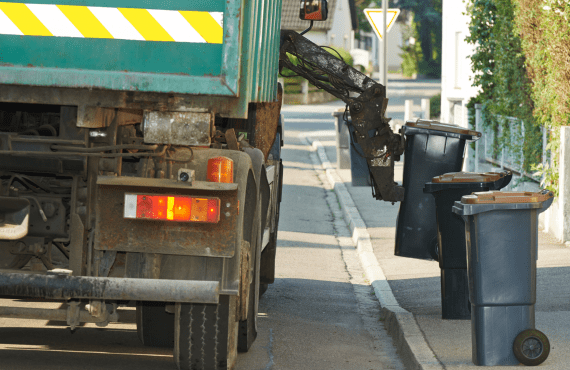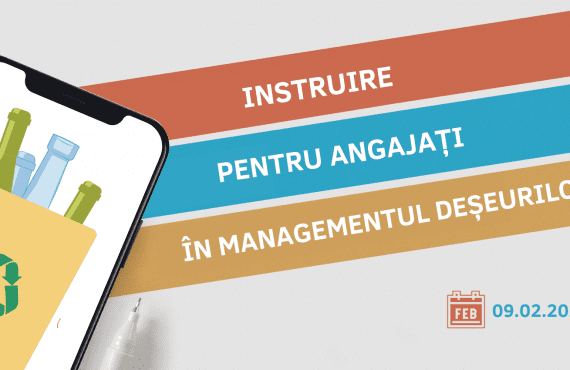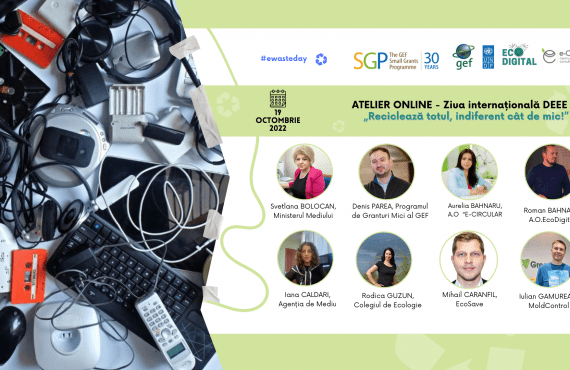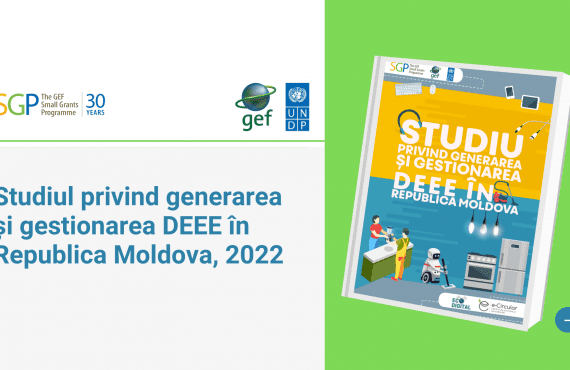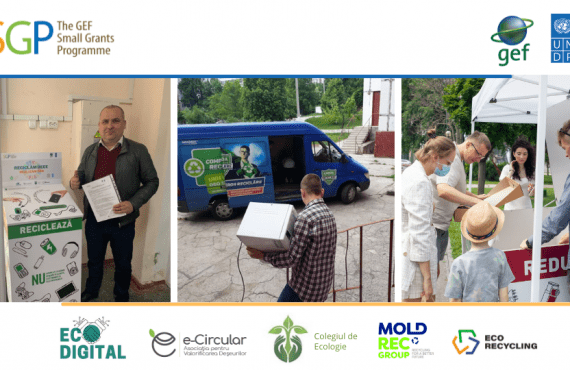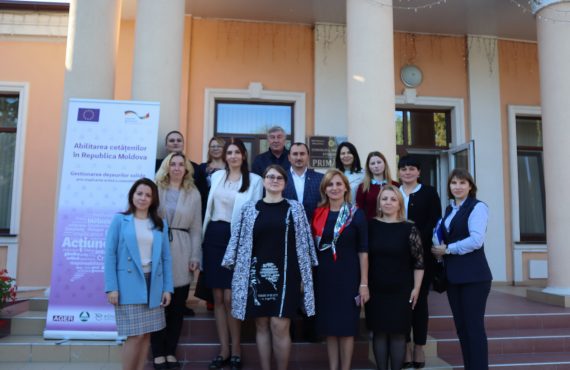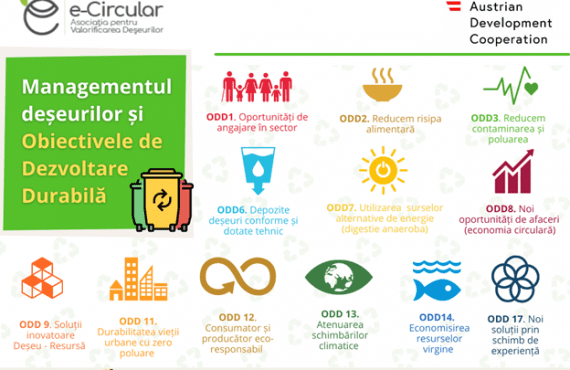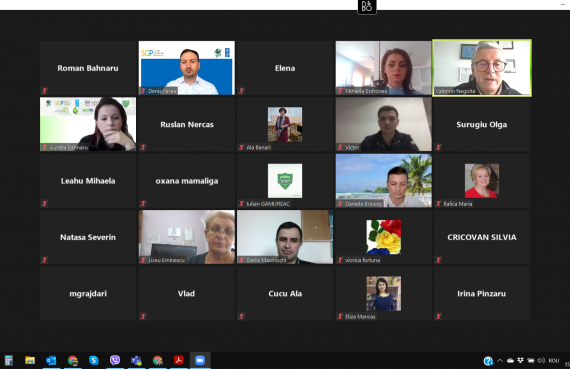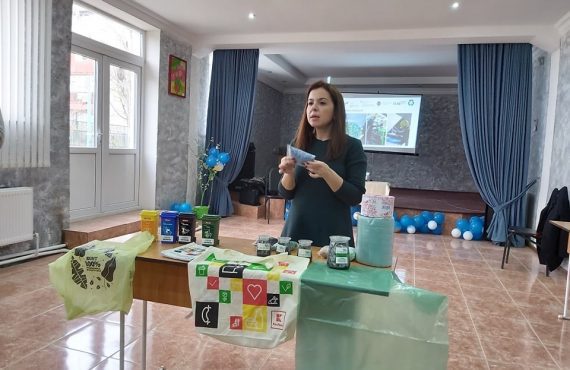The recycling industry can contribute to job creation and the development of a green and sustainable economy!
What can you tell us about the WEEE market in Romania and how complicated it was to meet the collection target?
RP – In general, the situation regarding waste management in Romania is full of challenges, and the field of electrical waste is no exception. We face the lack of legislative harmonization, the absence of municipal collection points that should be found for every 1 in 50,000 inhabitants, the lack of involvement and interest of local public authorities and the lack of information or motivation of citizens to collect selectively the waste they generate. In addition, the target of 45% from the average quantities of EEE put on the market in the last 3 years is not adapted to the standard of living and consumption style in our country. Many appliances are the first equipment in households, so they do not replace older products, the life cycle of a product is much longer compared to the rate of replacement in developed European countries, and Romanians in general have a hard time parting with old equipment: either store it, either sell it online on second-hand sites, or donate it to other acquaintances.
In all this context, 2019 was a very difficult year in which our team mobilized and made extraordinary efforts in all directions, thus managing to reach at the end of the year a WEEE collection rate of 45,97%. We expanded the number of partnerships with authorized collection operators, we tried to strengthen the collaboration with local authorities by jointly organizing collection campaigns from the population and thus establishing those mobile collection points, and we continued the intensive campaign of awareness and education of the population that we are running without interruption since the establishment of the Association.
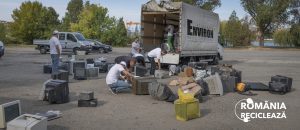
What are the necessary prerequisites to succeed in meeting the WEEE collection targets?
RP – First of all, it takes a lot of determination, consistency and work to which I would also add passion because it is not a field of activity where results come very easily. From a pragmatic point of view, ideally, a performing e-waste management system should be based on the following elements:
- well-defined legislation that specifically outlines the responsibilities of each actor involved, applicable and controllable so that through the support of the competent authorities, those who do not fulfill their duties are held accountable;
- the creation of accessible municipal collection points where the population can hand over electrical waste for free;
- the responsibility of distributors by fulfilling the obligations regarding the free collection from customers' homes in a 1:1 regime in the case of large equipment and the collection of small waste in the store by the visible positioning of the dedicated containers and the appropriate information of the employees;
- good collaboration and open communication between the central authority, local authorities, sanitisers, treatment and recycling operators, collectors, producer organizations and the business environment;
- support from the mass media on raising awareness among the general public;
- civic sense, interest, responsibility on the part of citizens.
I think it's about taking responsibility from the individual to the company, to the authority, to the decision makers. Finally, I would add that we actually need an understanding on our part, all of us, of the obligations we have as inhabitants of this Planet to take care of what we leave behind us and future generations.
How does the waste electrical and electronic equipment takeover work for manufacturers and importers of electrical and electronic equipment? What are Environ's and manufacturers' responsibilities in this process?
RP – According to the European Directive also transposed into Romanian legislation, there is this principle of extended producer responsibility (REP) which represents an environmental policy according to which the producer's responsibility is extended to the post-consumer stage of the product's life cycle, which means that the manufacturer has the responsibility of managing the waste resulting from the products placed on the market.
Collective organizations such as the Environ Association take on this responsibility on a contractual basis and are obliged to finance from the green stamp collected (the management cost of the WEEE that the consumer pays when purchasing a new product) from the affiliated producers, the collection system and recycling of WEEE. Basically, we organize collection points, equip stores with collection containers, collaborate with collection operators who have access to waste, organize the pickup and transport of waste to recycling facilities and follow the closing of the circle by obtaining reports on the resulting fractions and their destination at the recyclers. In addition, we permanently run ecological education campaigns in educational institutions, but also at the level of the general public, and we try to collaborate with the authorities in order to identify the best solutions for improving the waste management system. All these activities are based on a single objective: the fulfillment of the target assumed on behalf of the producers who have chosen to transfer the responsibility to Environ. In addition to all these services, there is also support regarding reports to the environmental authorities and environmental legislative consultancy.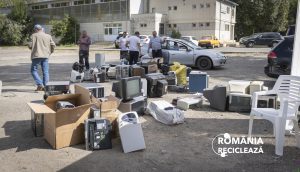
Regarding producer responsibility, we believe that it is a subject that should be given more importance: it is good for producers to understand that entering into a contract with a liability transfer organization does not mean that they have absolutely no obligation in the field. We need their support to be able to meet their goals and support could mean free delivery of the waste they generate or collect from customers, prompt response to requests or information from us that directly concern them , involvement in customer awareness and accountability campaigns. In short, companies should understand that regardless of the field of activity, they have an impact on the environment, and sustainability must be part of the company's DNA, not limited to a trend or a CSR (Corporate Social Responsibility) policy ).
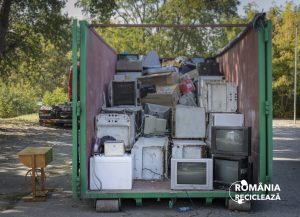
In order to collect such a large amount of WEEE, the involvement and information of the community is unquestionably important. What do you think are the most effective methods to rid the population of this toxic waste?
RP – First of all, we have to convince the population of the need to hand over this dangerous waste, and for this we have been running an environmental education campaign in educational institutions since 2011, Baterel and the Non-E World a program implemented in more than 1,500 schools nationwide and which benefited about 50,000 students. At the same time, from 2018 we started a biannual awareness and collection project, the "Romania Recycles!" campaign. during which we organized over 200 actions in rural and urban localities from all counties of the country and we hope that in the next 2 years we will reach at least 1000 communities.
Regarding disposal methods, as I said before, it is absolutely necessary to create those municipal collection points that take into account population density, are accessible in terms of location and flexible in terms of working hours. Then, a solution is to organize similar campaigns together with the sanitation operator "one day collection" at least quarterly, on a set and communicated date that allows people to dispose of bulky waste that they may not be able to transport themselves to collection points. And the third option remains the collection points organized in retail chains, at distributors. Environ launched an app in 2016 to identify the nearest collection points for electrical waste and used batteries. The application is called "Where do we Recycle?"(www.undereciclam.ro) and integrates over 4,500 national points organized in supermarkets, pharmacies, gas stations, retailers, shopping centers, etc., the objective being of course to ease the work of those who wanted to recycle, but did not know where they could hand over these types of equipment.
Tell us what is the fate of the collected WEEE, where are they recycled and if Romania benefits from the secondary raw material obtained from this process?
RP – The collected electrical waste reaches the specialized treatment and recycling operators where the recycling processes specific to each category of waste take place. Fractions resulting from recycling can end up being used for the manufacture of new products or can be reused as such. For example, plastic, aluminum and iron from ICT equipment are used to make other equipment of the same kind. Printed circuit boards with gold, silver, copper, nickel, cadmium, precious metals used in the manufacture of jewelry or shipbuilding, garden furniture, license plates or car spare parts are extracted from mobile phones.
Opinions regarding the profitability of WEEE recycling businesses are different. However, we would like you to confirm if there is an economic motivation from recycling waste electrical and electronic equipment? From which types of WEEE (refrigerators, phones, circuits, etc.) can precious metals (Ag, Au, Pt, etc.) be recovered, and of course if you have statistics at a quantitative level?
RP – From the point of view of a collective organization, WEEE recycling is a process that only involves costs: collection costs, transport costs, recycling costs, awareness costs, and for us as an NGO things are not measured in terms of profitability.
From another point of view, at this moment in a country like Romania that stores about 70% of the total waste generated, the recycling industry is not necessarily profitable, the recycling factories often do not have raw material to process. At the same time, however, we should take into account the two pillars that underlie the promotion of recycling: reducing the consumption of natural resources and recovering secondary raw materials and reducing the negative impact that waste, as well as the resource extraction process, have on the environment. The recycling industry can contribute to the creation of jobs and the development of a Green, sustainable Economy and initiatives at European level, such as the recently adopted European Green Pact and the Circular Economy Package encourage the economy in this sense.
The interview is published in number 1 (25) of Waste Management Magazine. To subscribe to the Magazine fill out the form here.

